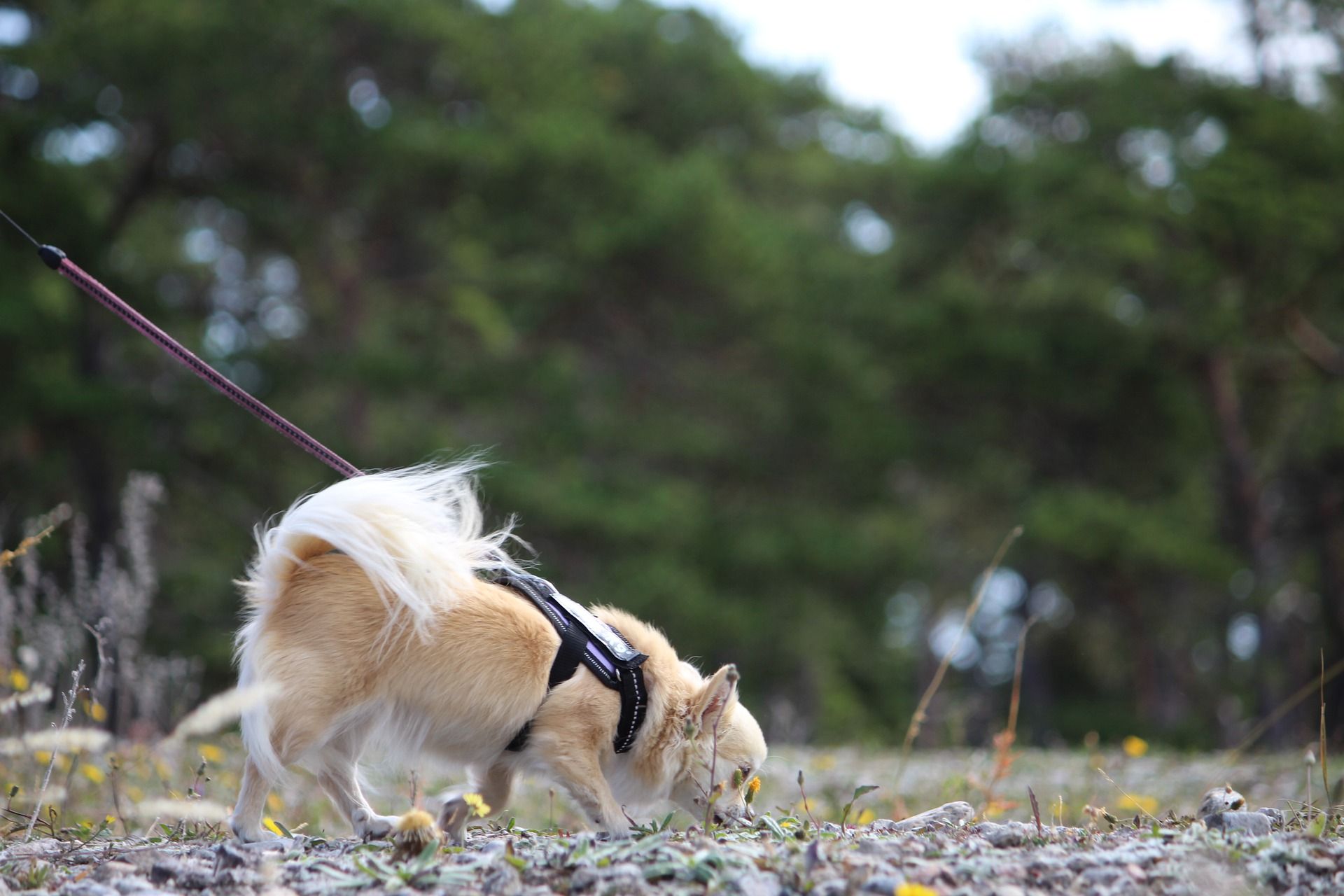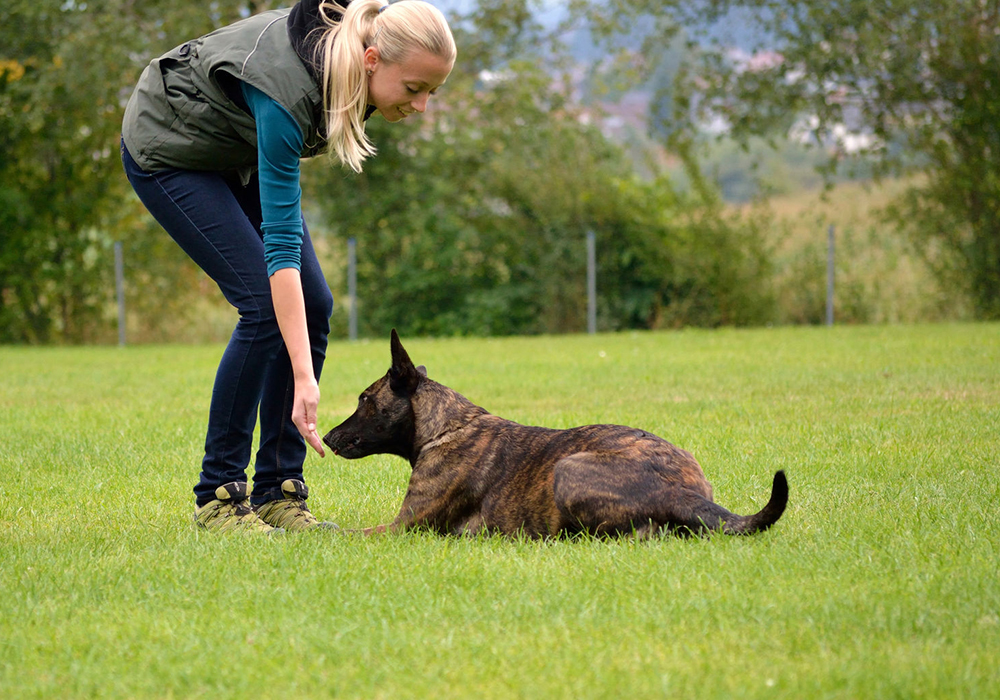How To Become A Dog Trainer

So you want to become a dog trainer?
The first best step you can take to become a dog trainer is to join a professional organization dedicated to animal behavior and training.
Most professional animal trainer organizations encourage new or aspiring trainers to join. You can find out about educational opportunities, learn from established trainers and behavior consultants, and develop your network of training colleagues.
Organizations to consider joining include the International Association of Animal Behavior Consultants (IAABC) and the Association of Professional Dog Trainers (APDT).
Dog trainer versus dog behavior consultant
What's the difference between a dog trainer and a dog behavior consultant?
Dog trainers are professionals who are skilled in teaching dogs new behaviors. These new behaviors can be useful on their own, such as teaching a dog to wait politely at the door. Or, new behaviors can be taught to replace unwanted ones, such as teaching a dog to keep four feet on the floor instead of jumping up.
People call dog trainers for a variety of reasons. Often, dog trainers are asked to address training and behavior issues at the same time. Some dog behavior problems require education and experience to successfully resolve, such as separation anxiety or aggressive behavior.
When a dog's behavior issue is potentially harmful to itself, people, or other animals, it is best addressed by a dog behavior consultant or veterinary behaviorist.
Animal behavior consultants use tools and techniques from the field of behavior analysis. Their approach is based on years of research and real-world experience about how to change behavior in an efficient, effective, and humane way. Dog behavior consultants are usually certified by a professional organization that upholds standards for the treatment of people and animals in their care.
Train your own dogs
You need to practice training dogs to become a dog trainer.
Beyond training your own dogs to be good canine citizens, earning a title with your dog can challenge and sharpen your training skills. There are dozens if not hundreds of dog sports and titling venues to choose from. These include online and nosework venues, if travel with your dog isn't an option.
A few other examples of activities you can earn titles with your dogs include obedience, agility, disc, herding, tracking, flyball, or dock diving.

Work with multiple dogs
Shelters and rescues are great places to volunteer your time while gaining hands-on dog training skills.
Working with as many dogs as you can will improve your knowledge of dog body language. You need to know when you're observing a dog whose mental or emotional states could lead to aggression. Become familiar with the basic body language dogs display across breeds — stress, avoidance, fear, aggression, relaxation and arousal.
If you can, offer to foster puppies or young dogs. If you have the opportunity, help train and socialize puppies for breeders, shelters or clients. Much of the behavior that drives people to abandon, rehome, or euthanize their dogs can be addressed early.
Teach people to train their dogs
A significant skill in professional dog training is the ability to teach other people. You can improve your public speaking and teaching skills by apprenticing with a local trainer who teaches classes, or volunteer with your shelter's public training program.

What skills are most in demand? Loose-leash walking, puppy house training and crate training, and basic manners such as sit, down, stay, and come when called.
Dog trainer education and schools
If you’re employed by or volunteer for an established dog trainer or dog behavior consultant, you can work alongside them or under their guidance. This is a good way to further your dog training education and to get exposure to increasingly difficult training and behavior cases.
How can you find a dog training internship or mentor? Ask! Many established dog trainers are happy to provide skills and knowledge education in their areas of expertise.
Look into the background of your potential mentors, and see if they're associated with any professional organizations, universities, or other learning institutions. Ask questions about how much hands-on experience you'll be getting and what types of cases or training they take on.
As mentioned, membership organizations that offer networking and education for dog trainers include the IAABC, the IAABC Foundation, APDT, the American Veterinary Society of Animal Behavior, and the International Society of Applied Ethology.
Some popular schools and online training programs include: Academy for Dog Trainers, Catch Canine Trainers Academy, Karen Pryor Academy, Pat Miller Certified Trainers, and Animal Behavior College.
Look for a program that encourages the use of sound behavior science and humane dog training principles.
Getting certified as a dog trainer
In the United States, there is no licensing or certification requirement to be a dog trainer.
While regulation is a hot topic for the dog training profession, only a handful of attempts have been made to introduce legislation for professional licensing.

You'll want to track your experience and education hours to determine when you're ready for certification. Typically 1-2 years working with a professional trainer or behavior consultant is needed before you have enough experience and knowledge to pass a dog trainer certification exam.
Certifications assess your working knowledge of learning theory, animal training and husbandry, and your skills teaching others and managing a dog's behavior. Becoming certified shows you're serious about developing your dog training skills and allows you to demonstrate your qualifications to clients.
The IAABC has a recommended reading list if you're interested in certification.
Before pursuing certification as a dog trainer, keep learning in as many different formats as you can. Work with other trainers, network on and offline. Take advantage of the plethora of online webinars and workshops to learn from. Train your own dog in a new format or area you’ve never attempted before.




